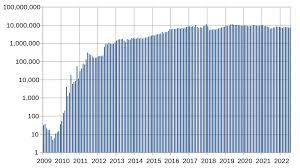Self-employed people may find getting an expansion loan a challenging task. However, there are several options available, including no-doc loans, second mortgages, or lines of credit that could provide the financial relief you need.
Have you dreamed about owning your own business? Perhaps the fact that success or failure depends completely on you has been holding you back. Unfortunately, big business often makes it difficult to keep independent awnings thriving. Insurance is expensive, employees are hard to keep, and once you make progress, you may need some cash to expand. It may be difficult to get anyone to loan you the money. Here are some areas where you can look to get you past this hurdle and on your way to success.
Tapping your home's equity
This is a time when qualifying for a loan is more difficult than ever. Lending institutions are reluctant to give those who are self-employed loans of any kind, because it's difficult to prove that your business is profitable. However, there are options.
If you're struggling to make ends meet, consider refinancing your current mortgage. Provided that you're locking in a lower interest rate, you could access extra cash to give yourself a little breathing room.
HELOC for second mortgage
There are times when unexpected expenses make the monthly bills challenging to meet. In this instance, a variable-rate home equity line of credit (HELOC) would be a good choice. You'll need to have equity in your home, of course. A HELOC is like a credit card, with a revolving credit line, and you pay back only the amount that you borrow. Once you do, it's available for you to use again. It's a type of safety net for difficult financial patches.
Fixed-rate home equity loan
For a larger lump sum, you could apply for a second mortgage home equity loan. You'll need to provide two to three years of paperwork proving that your business is profitable, and that you're worth the risk. Take the time to review your credit report, and make sure that there are no errors. Then, shop around for several quotes for interest rates.
One more option is to apply for a no-income verification home equity loan, which is essentially a second mortgage that doesn't require you to provide income documentation. To qualify for this kind of loan, you'll need good credit. You'll also likely pay a higher interest rate. The bank may require you to have a certain level of assets that will have to be verified. Due to the mortgage crisis, many banks have stopped offering this type of loan, but it's worth shopping around to find one that does.
When you own your own business, extra cash is always welcome. The good news is that there are loans out there for the self-employed that can keep you a happy and healthy independent business owner.





